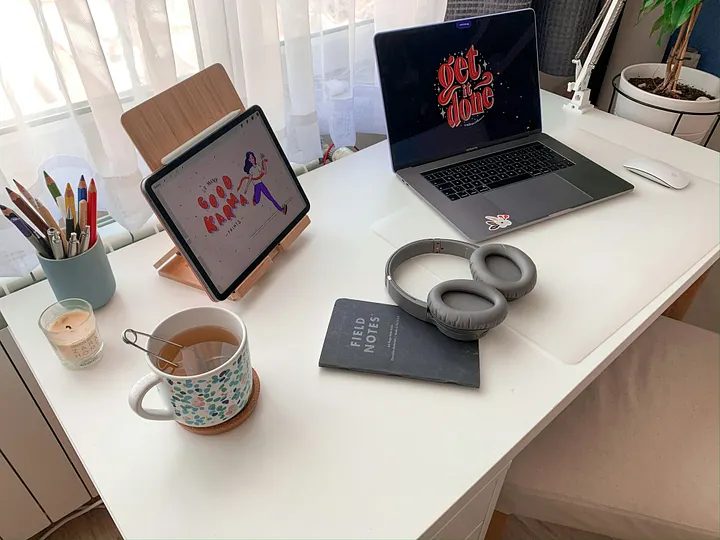The internet is filled with motivational content. You watch a video on YouTube and get pumped to become the new you. You read a book on money and think you can become rich the next day. You aim to improve your life by starting a business, losing weight, or enhancing your spirituality. Whatever the reason, you want to get better, so you consume a lot of motivational content.
Unfortunately, your motivated self falls apart once you get distracted. You forget all the motivation from the video and return to your old self.
Let’s take another example. You read a self-help book, learn some great insights, finish the book, and believe your life has improved. Sadly, you only remember 10% of what you read. And it also slowly fades away once you get going with your life. You pick up another book, thinking it will make a difference. But it’s the same repetitive cycle happening over and over again.
Consume → Get motivated → Plan for change → Distractions → Back to old self
My story with self-improvement
I used to be highly motivated. I still am, but my former self was on another level. My daily routine included morning runs, 30 minutes of reading, meditation, writing, and deep work.
I also started writing blog posts about self-improvement because I was on the same path. Later, things changed. My habits weren’t the same. I still read books and wrote about self-improvement. However, I didn’t feel the same drive in me. It felt like I was lying to the readers, even though they benefited from my content.
Reading books on self-help, watching motivational videos on YouTube, and listening to podcasts/audiobooks felt like I was progressing. But, I realized (after some intense self-assessment) that things only improved a little bit.
It was challenging to retain the content I consumed. Although I thought I was getting better, the reality was different. I had a false belief that consuming content helped improve my life.
You follow influential gurus who tell you to work hard, follow your passion, and persist. You think you are on the right path when you consume their content. Sadly, you are still the same after years of listening to them.
The sad reality is that consuming self-improvement content makes us believe we are improving. Remember, consumption doesn’t equal change. It’s a false belief that reading a hundred self-help books will help us.
Don’t get fooled by this self-improvement fallacy.
Retention over consumption
Consuming self-improvement content is good, but believing that only doing so will help you improve isn’t. It is crucial to retain the information you consume. For instance, when you finish reading a book, you must remember what was in it and implement it daily. Take notes and highlight important points in the book. Reflect upon them after you have completed the book.
Best-selling author Ryan Holiday uses a notecard system to remember what he reads. He also writes on the pages of the books to reflect on the information. You can do the same. Whatever technique you use, the purpose is to remember what you consumed so that you can implement them.
I used to have a hard time remembering what I read. Then, I used the same method as Ryan’s — reading with a pen and taking notes while I read. Later, I reflect on the notes and re-read some chapters if necessary. After implementing this new reading technique, I noticed a severe difference in my retention ability.
Retention is easier said than done. What’s even more challenging is implementing the ideas in your daily life. It takes practice. Things will change once you understand that only consuming content isn’t helping you. Whether watching a video on YouTube, scrolling on social media, reading a book, or listening to a podcast, you become self-aware of how you retain the information.
I heard this amazing quote that went something like this:
Rather than reading 53 books a year and not remembering most of its content, it’s better to read one book a year and implement it for 53 weeks.
Understand the self-improvement fallacy and get out of the cycle as soon as possible. The information age is ruining your ability to retain the important stuff. It’s because there are hundreds of sources of information on the internet. Further, our attention spans are decreasing.
During such an intense time, it is crucial to become self-aware of your consumption habits and genuinely understand if they benefit you.
Has the self-improvement fallacy trapped you?
If yes, it’s time to escape…now.
Want more inspirational content from me? Start here for free.




